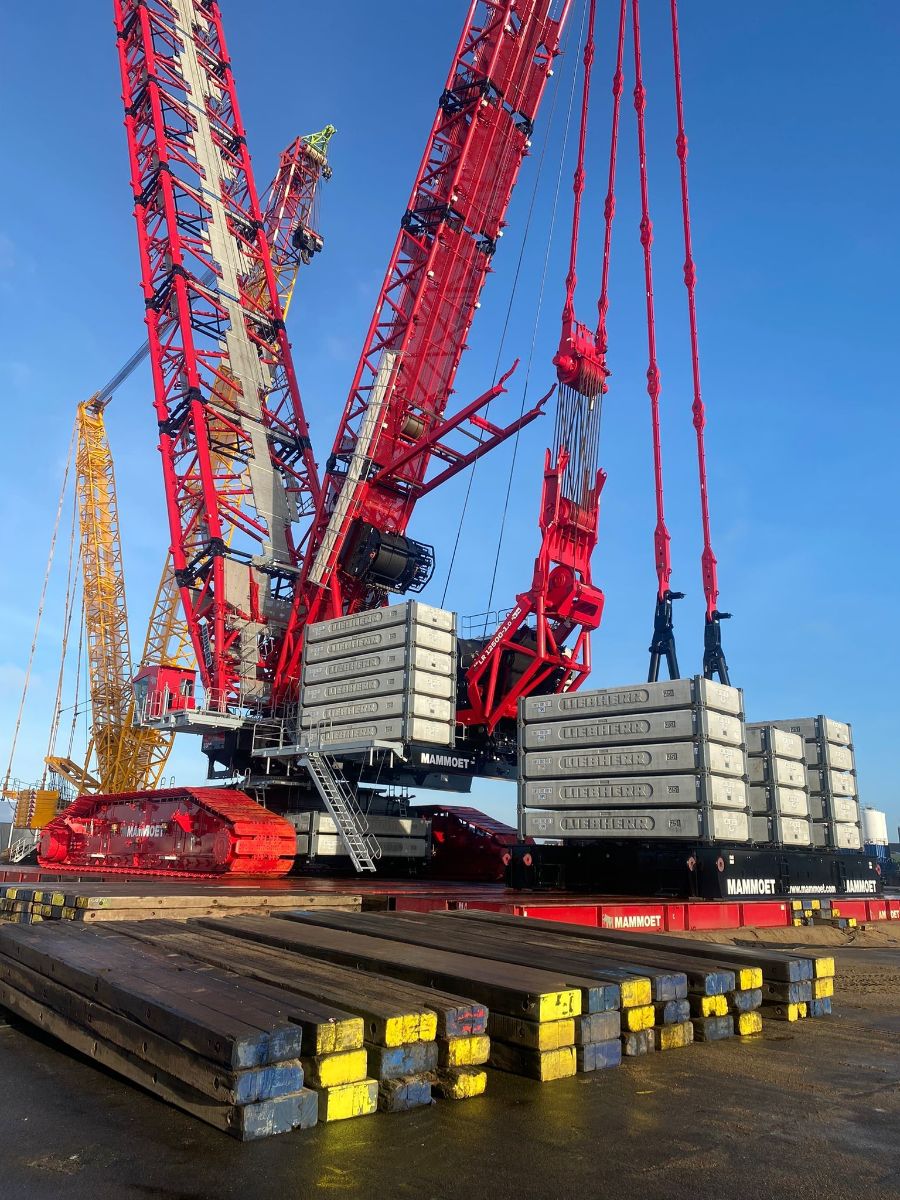
Mammoet, a global leader in engineered heavy lifting and transport, has announced that it has taken delivery of the first LR12500 crane from Liebherr, a leading construction equipment manufacturer.
A major crawler crane model, it boasts a capacity of 2,500 tonne and a 200-m hook height, that will help to ensure the constructability of future energy and infrastructure developments.
The LR12500 features a wide high-performance boom, which offers increased stability at reduced (self) weight. Despite its large size, it folds into dimensions small enough to remain in-gauge. Both features increase the cost-effectiveness and sustainability of its mobilization.
A 100m main boom and 108m luffing jib help the model to reach 200m maximum hook height. Dual engines with redundancy ensure high levels of reliability, as the crane can continue operation using just one power unit.
Seeking greater build efficiencies, projects across a range of sectors are increasing the size and scope of prefabricated construction methodologies. As a result, assurance is needed that today’s project planning will match tomorrow’s equipment, said a statement from Mammoet.
Energy projects in both the nuclear and oil and gas sectors will rely heavily on high capacity lifting equipment to bring forward the date of first power, while increasing the cost-effectiveness of the build phase in the case of new construction, and reducing downtime in the case of turnaround projects.
Offshore wind turbine components are growing at a fast rate, with nacelles of 1,000 tonne, tower sections of 2,000 tonne and jackets and monopiles of 3,000 tonne in production.
Companies across the sector need peace of mind that components currently planned can be transported and assembled by future equipment – as lead times increase, doubly so.
Similarly, civil megaprojects will depend on high-capacity lifting equipment that allow more construction to take place away from the project site, with both cost and environmental benefits.
In all cases, the new LR12500 unit will support these construction methodologies, building in larger pieces to cut down integration and transport schedules.-TradeArabia News Service














.jpg)









































